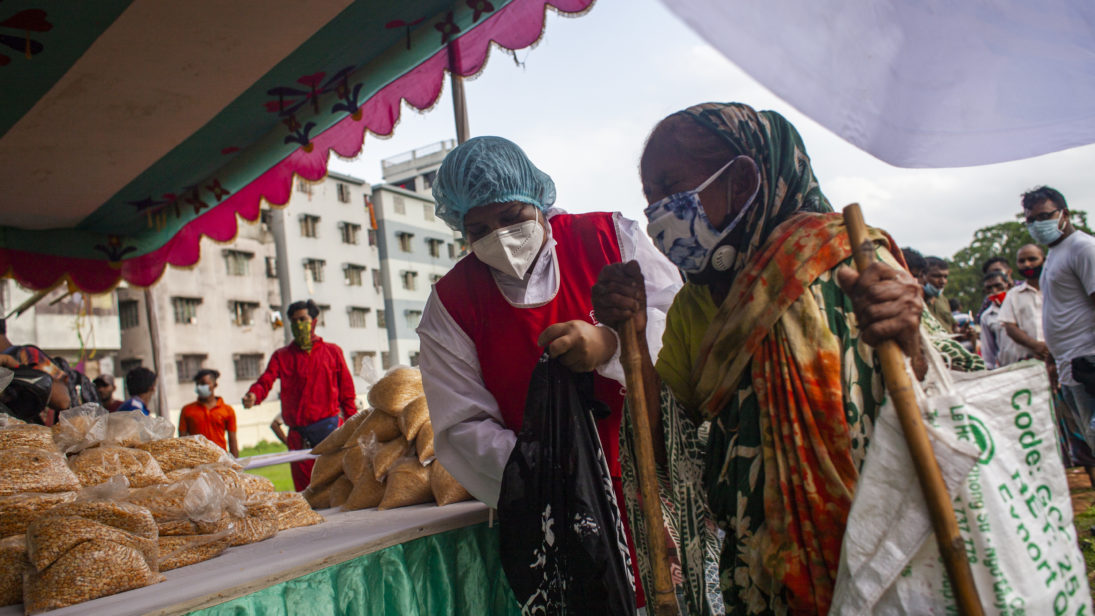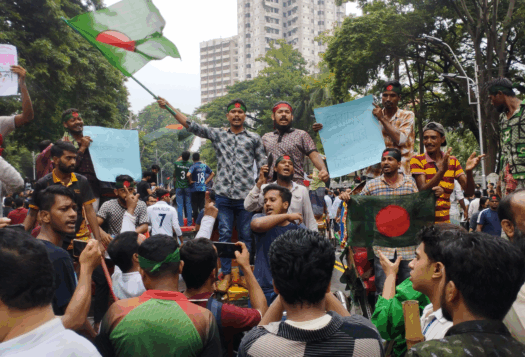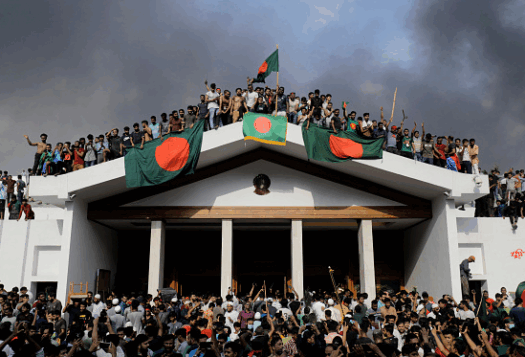
The COVID-19 pandemic has relentlessly spread across Bangladesh, which now finds itself in the middle of the global epicenter of the virus—South Asia. Among the available alternatives, the country has been using the Oxford-AstraZeneca vaccine, procured from the Serum Institute of India under the name CoviShield. While the country has been one of the earliest nations to start its vaccination program, it is at risk of running out of its existing stock. India, Bangladesh’s main vaccine supplier, has recently imposed a ban on its vaccine exports. Locally manufacturing the vaccine could be a potential solution, but unlikely to happen anytime soon as developing countries continue to face resistance from wealthier nations over patent rights. Almost one and a half years into this global pandemic, the uncertainty surrounding the pandemic is still very much palpable.
Bangladesh initiated its vaccination program on February 7, 2021, with the first recipients being frontline health workers, police, government workers, teachers, and everyone above the age of 40. As of April 26, 2021, over 7.9 million doses of vaccines have been administered—3.6 percent of the population has received the first dose while 1.3 percent has received both doses. However, this is not enough. Not only should Bangladesh procure vaccines from multiple manufacturers, but also the international community should help developing countries produce vaccines locally.
Community Response to Vaccines
The Bangladeshi government has developed a website and a mobile application to coordinate its vaccination drive, both of which have operated smoothly in surprising contrast to former, faulty registration digital platforms. However, the sole reliance on a digital platform means that reaching out to people in rural areas has been particularly difficult. Most rural populations live below the poverty level and, thus, lack access to the internet or required digital devices to register for the vaccine.
Misinformation distributed on social media channels has primarily driven efficiency concerns. Boom Bangladesh, a third-party fact-checking partner for Facebook, has flagged approximately 1 million Facebook posts associated with the spread of misinformation on vaccines in January 2021 alone
Additionally, there are apprehensions over the efficacy and potential side effects of the vaccine. The evolution of COVID-19 variants risks negating the efficiency of existing vaccines. For instance, the AstraZeneca vaccine is reportedly ineffective against the South African variant of the virus, currently the predominant variant in Bangladesh. Misinformation distributed on social media channels has primarily driven efficiency concerns. BOOM Bangladesh, a third-party fact-checking partner for Facebook, has flagged approximately 1 million Facebook posts associated with the spread of misinformation on vaccines in January 2021 alone. The sourcing of vaccines from India has also contributed to this hesitancy considering anti-India sentiment has risen due to recent border and migration issues. In addition, low infection and low mortality rates amongst rural populations could have also contributed to an unwillingness to receive vaccines.
Bangladeshis have traditionally shown low vaccine hesitancy, which has helped the country reach over 90 percent vaccination coverage, for antigens, prior to COVID-19. However, a recent study uncovered a 32.5 percent COVID-19 vaccine hesitancy among Bangladeshis, which was higher among 60-and-above unemployed, low-income males. While the vaccination drive has started pick up speed recently, the key concern now is ensuring the timely procurement of vaccines to inoculate 130 million people in its planned five stages.
Vaccine Procurement Issues
While both Pfizer and Moderna vaccines have shown to be highly effective against most variants, Bangladesh lacks the cold chain system required to store, transport, and distribute these vaccines at low temperatures. In particular, the local hot and humid tropical climate, difficulty transporting cold-stored vaccines to remote island communities, and lack of ultra-cold freezers obstruct efforts to procure the Pfizer and Moderna vaccines. Consequently, in the early stages of vaccine procurement, the government chose to administer the Oxford-AstraZeneca vaccine that requires a more convenient storage temperature.

Bangladesh has so far secured over 10.2 million doses of the CoviShield vaccine, which includes a gift of 3.2 million doses from India. The government has secured priority contracts for 30 million doses of the vaccine from Serum Institute, with 5 million coming in every month. However, as India’s COVID-19 cases spiral out of control, the country has enacted a temporary freeze on its vaccine exports, putting Bangladesh at risk of depleting its existing storage by the end of May. This has exposed the government’s myopic strategy of relying on just one supplier as government officials are now scrambling to secure vaccines from other producers. Bangladesh is not able to purchase AstraZeneca vaccines directly (so Bangladesh has imported the vaccine through through India’s Serum Institute) while GAVI, an alliance of public and private organizations to ensure equitable global immunization, can only supply its promised 20 million vaccines in May, which is contingent upon the Indian government’s lifting any export restrictions. Therefore, the Bangladeshi government has recently held talks over the purchase of the Johnson & Johnson vaccine. Additionally, Bangladesh has joined China’s COVID-19 vaccine storage facility for South Asia which would allow emergency usage of vaccines. The government has also signed a deal with Russia to manufacture the Sputnik V vaccine locally. The government needs to continue to look for securing other viable alternatives to avoid vaccine dependency.
Is Manufacturing an Option?
One of the more viable and secure alternatives for Bangladesh would be to obtain a license to start manufacturing vaccines itself. Bangladesh already has a strong, burgeoning pharmaceutical manufacturing industry worth over USD $3 billion and exports to 144 countries worldwide. The country’s largest pharmaceutical manufacturers claim to have the required capacity to mass-produce vaccines. However, the government is yet to hear back from AstraZeneca on its proposal for seeking technology to manufacture the vaccine and import and repackage it. Nevertheless, the government needs to invest in developing existing facilities, building technical capabilities of skilled labor, and standardizing the biological lab of the national drug licensing authority Directorate General of Drug Administration according to World Health Organization standards.
As the world faces a supply crunch in a race against time, vaccine producers must pool their resources with manufacturers in developing countries to augment production.
Wealthier countries have not supported local production for developing nations either. In early March, the richer member-states of the World Trade Organization (WTO) blocked an 80-country proposal led by India and South Africa requesting to waive WTO’s Trade-Related Aspects of Intellectual Property agreement rules, that would enable the production of vaccines in developing countries. While wealthy nations argue that waiving the agreement would not increase the supply of vaccines, they are currently sitting over 1 billion extra doses of vaccines as the bulk of developing countries such as Bangladesh struggle to source vaccines even for those in dire need.
The United States stated on April 25 that it has partially lifted a ban on the export of raw materials for vaccines to India and on April 26 announced that it would share AstraZeneca vaccine doses. However, this delayed decision reflects hesitancy in the West to equitably share resources. As the world faces a supply crunch in a race against time, vaccine producers must pool their resources with manufacturers in developing countries to augment production. Delays through debates and discussions over patents in this time of critical need will only increase the death count, and developing countries like Bangladesh will continue to receive the short end of the stick.
***


